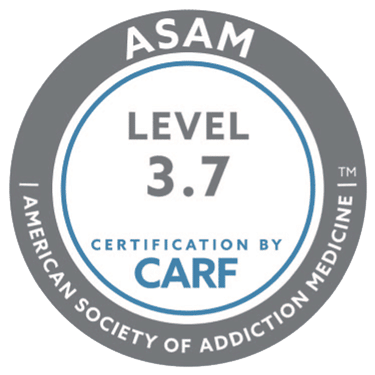When you’ve consumed too much alcohol, your body experiences a range of side effects, from short-term impairments to long-term impacts. Most heavy drinkers simply wait it out, letting their body process the amount of alcohol consumed. However, if you need to flush alcohol from your system quickly—whether because you drank more than intended or due to an unexpected emergency—you may be looking for ways to speed up the process. While drinking plenty of water and hydrating can help alleviate symptoms, it won’t shorten the length of time alcohol stays in your system.
If you’ve been binge drinking or find yourself regularly needing to sober up quickly, consider seeking professional assistance for detoxing. Staying hydrated by drinking water can help you feel better, as it combats dehydration symptoms associated with a night of drinking. However, water does not reduce traces of alcohol in your bloodstream.
Alcohol tests measure traces of alcohol left in your body, which depend on factors like alcohol content and how much time has passed since your last drink. In general, heavy drinking requires your body to work harder to flush out alcohol and clear it from your system. If you often find yourself trying to speed up the recovery from a standard drink or several, a structured approach to detox may be beneficial.
How Long Does Alcohol Really Stay in Your System?
Your body processes alcohol through a metabolic pathway involving alcohol dehydrogenase enzymes, which convert ethanol into acetaldehyde and eventually to acetic acid. On average, the body metabolizes alcohol at a steady rate—around one drink per hour. In the United States, “one drink” equates to about 12 ounces of beer or 5 ounces of wine (or about 14 grams of ethanol), according to the National Institute on Alcohol Abuse and Alcoholism. However, this rate can vary significantly depending on factors like height, weight, blood alcohol concentration (BAC), type of alcohol, genetics, and overall health.
When you consume more alcohol than your body can metabolize efficiently, BAC increases, leading to intoxication. Your body will continue metabolizing the alcohol, but it requires time. Ethyl glucuronide (EtG) tests can even detect alcohol byproducts in the body for up to 80 hours after consumption, long after the visible effects of intoxication have worn off. Simply put, you’ll feel the effects of alcohol for as long as there’s a surplus of ethanol in your system that your body hasn’t yet processed.
| Drug Testing | Time in System |
|---|---|
| Blood Tests | Up to 12 hours |
| Breath Tests (Breathalyzer) | 12-24 hours |
| Urine Tests | 12-24 hours; 72 hours or more after heavier use |
| Saliva Tests | Up to 12 hours |
| Hair Tests | Up to 90 days |
Common Myths About Detoxing From Alcohol
Some very common myths persist about clearing alcohol out of your system. One is drinking coffee; however, coffee doesn’t help. The caffeine in coffee can make you feel more alert, but it does nothing to lower your blood alcohol level. You’d still be drunk, just not as tired. If you were to drive and be pulled over, you could easily fail a DUI exam.
Another common myth is about taking a cold shower. Like caffeine, the cold water can make you feel more alert, at least temporarily. But again, it won’t clear out your system. And if you’re very, very drunk, the cold water could even be risky as the shock could make you pass out.
Natural Ways to Help Your Body Clear out Alcohol
The truth is, time is the most effective way for your body to clear out alcohol. Once you stop drinking, your body will gradually process and eliminate the alcohol. While there’s no way to speed up this process, certain practices can support your overall health and help you feel better as you wait.
To aid your body’s detoxification, staying hydrated is essential. Alcohol acts as a diuretic, leading to electrolyte imbalances and dehydration, which can exacerbate hangover symptoms like headaches. Although dehydration isn’t the main cause of a hangover, it can make symptoms feel more intense.
Eating a healthy diet and getting adequate rest also support the body’s ability to process substances efficiently. A diet that includes nutrient-dense foods and helps regulate blood sugar can improve overall enzyme function, aiding your body’s processing of alcohol. Food also plays a role in alcohol absorption; drinking on an empty stomach sends alcohol directly into the small intestine for rapid absorption, intensifying its effects. Eating before or while drinking can slow this absorption, helping to moderate blood alcohol levels.
While these methods won’t speed up the enzymatic breakdown of alcohol, which involves the liver, maintaining good health practices can make the effects of alcohol more manageable.
When Is Professional Medical Detox Support Necessary?
If you find yourself needing to clear out alcohol frequently or suspect you have an addiction, seeking professional help for detox may be essential. For those who regularly drink heavily or who suspect they may be at risk of alcohol poisoning, a supervised detox can ensure safety throughout the process. If you’ve noticed that your body feels worse than usual as it processes the alcohol, speaking with a medical professional can help you manage detox safely. Going through withdrawal on your own can be dangerous; professional alcohol rehab or detox support can make the process safer and more manageable.
A fact that often surprises friends and family of those struggling with alcohol is how the fear of withdrawal can keep someone trapped in the cycle of addiction. Withdrawal symptoms can be intense and frightening, and it’s understandable that individuals may want to avoid these symptoms by continuing to drink. However, this only deepens the addiction and increases the potential for even more severe withdrawal symptoms in the future.
What Are the Symptoms of Alcohol Withdrawal?
Some symptoms of withdrawal can be comparatively mild. Fatigue, mood swings and brain fog are just a few of those symptoms. But others can be more severe. Vomiting, tremors and increased heart rate obviously interfere with your daily life. Delirium tremens is very severe and can include seizures and hallucinations.
Why Is Professional Detox and Recovery Help so Important?
Getting professional help with alcohol addiction detox offers both short- and long-term benefits. In the short term, having medical professionals support you through the withdrawal process provides essential protection. Experienced professionals can spot signs of severe withdrawal and manage any complications, ensuring you’re safe as your body processes alcohol out of your system. They’re also there to reassure you that withdrawal will pass, helping you stay focused on becoming healthier and feeling better. If you require medical intervention, such as medication to ease symptoms, professionals can assist with that as well.
In the long term, having a team of medical experts support you in overcoming alcohol use disorder increases your chances of success. Trying to quit alcohol consumption on your own can lead to a high risk of relapse, as the effects of alcohol on the brain and body make the process challenging. While relapse is still possible with professional support, your odds of staying sober improve significantly with a strong support system in place. Additionally, professional help reduces the risk of health complications associated with severe withdrawal from alcoholic beverages.
Treatment Options at Recreate Behavioral Health
The Recreate Behavioral Health Network offers comprehensive services for managing addiction and mental health concerns. If you or a loved one is at an acute stage, where you’re intoxicated and need a safe way to clear substances out, our treatment providers can develop a short-term detoxification plan to help you clear alcohol or other substances without risk. The network also provides a variety of treatment programs, including outpatient care, to address underlying conditions like depression that may influence substance use.
Our treatment center offers therapies to support recovery from substance abuse, including individual cognitive behavioral therapy (CBT) and group therapy. Once you’ve achieved initial sobriety, Recreate Behavioral Health can support your commitment to a sober lifestyle through ongoing therapy and relapse prevention. Continuing with therapy at our network strengthens your support system and makes it less likely that you’ll relapse, allowing you to work on your liver health and overall well-being.
You are not alone in this journey. Recreate Behavioral Health provides a full support network to guide you through withdrawal symptoms, address underlying issues impacting sobriety, and help you maintain that sobriety for the amount of time needed to truly heal. You deserve a better life, and your friends and family want to see you healthy and thriving. Handling detox and withdrawal alone can be risky, so seeking professional help is essential. Contact Recreate Behavioral Health to work with compassionate clinicians and therapists who are dedicated to helping you achieve a healthier, substance-free life.










